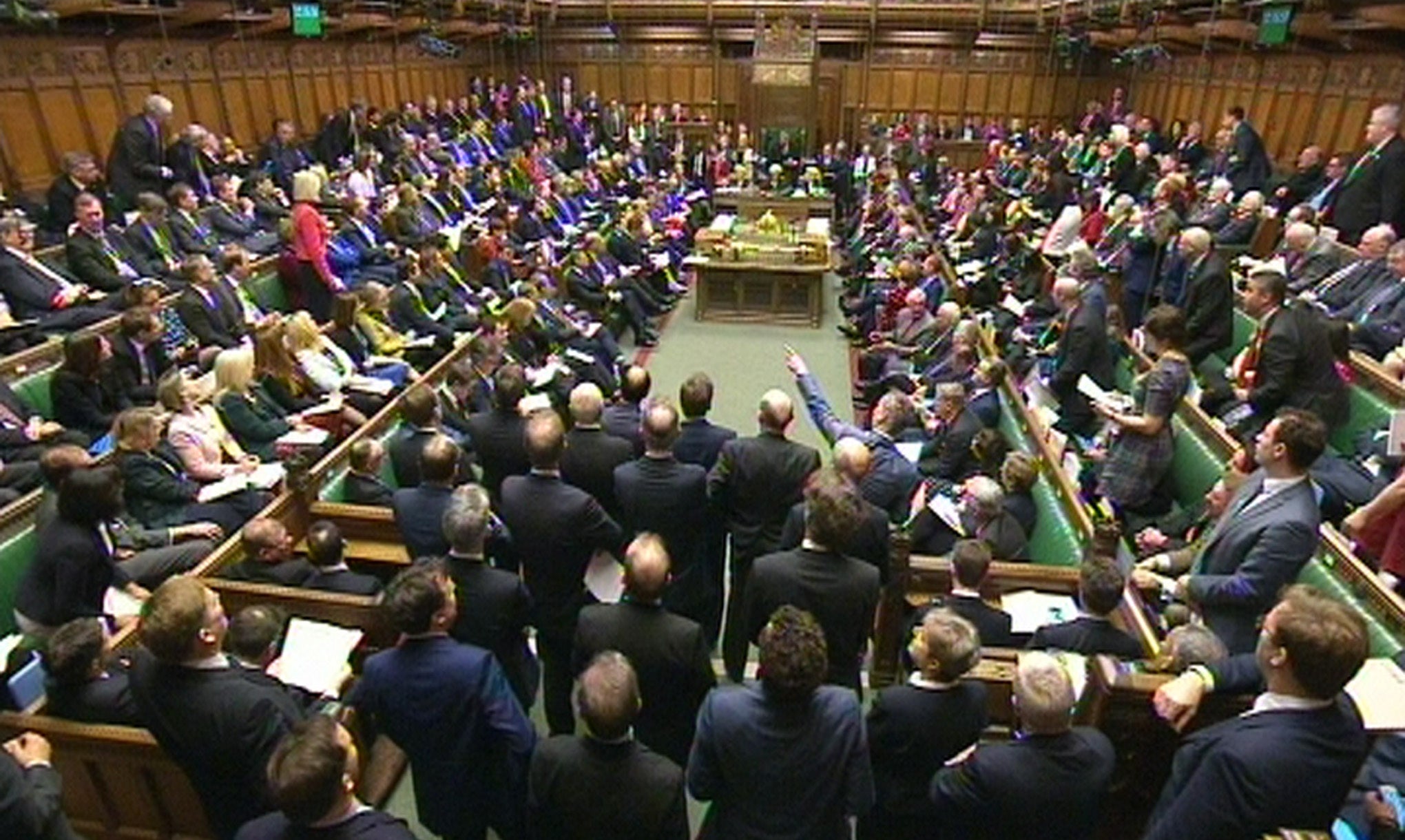MPs get pay rise of nearly £1,000 despite one per cent public sector wage caps
'If their pay is capped at 1 per cent, why shouldn’t ours be'

Your support helps us to tell the story
From reproductive rights to climate change to Big Tech, The Independent is on the ground when the story is developing. Whether it's investigating the financials of Elon Musk's pro-Trump PAC or producing our latest documentary, 'The A Word', which shines a light on the American women fighting for reproductive rights, we know how important it is to parse out the facts from the messaging.
At such a critical moment in US history, we need reporters on the ground. Your donation allows us to keep sending journalists to speak to both sides of the story.
The Independent is trusted by Americans across the entire political spectrum. And unlike many other quality news outlets, we choose not to lock Americans out of our reporting and analysis with paywalls. We believe quality journalism should be available to everyone, paid for by those who can afford it.
Your support makes all the difference.MPs are set to receive a 1.3 per cent pay rise of £962 despite voting for public sector pay rises to be capped to one per cent until 2019.
This increase will take effect in April - nine months after they received a backdated 10 per cent pay rise from £67,060 to £74,000.
One of 25 MPs who gave away her pay rise last year, Labour MP Gloria De Piero has attacked this second pay rise in less than a year.
The Shadow Minister for Women and Equalities told the Sun: "I’m concerned that yet again this looks like our pay is going up quicker than other public sector workers like police, nurses and teachers.
"If their pay is capped at 1 per cent, why shouldn’t ours be."
John Mann, Labour MP for Bassetlaw, said of the rise: "We shouldn’t be getting a rise that is bigger than anyone else’s. This will go down very badly with the general public."
The Independent Parliamentary Standards Authority (IPSA) have defended their decision, saying that over the last parliament (2010-2015) MP pay has not increased at the same pace as those working in the public sector or the wider economy.
IPSA’s chair Sir Ian Kennedy said: “In making the decision on MPs' pay we were very aware of the strongly held views of many members of the public and by some MPs themselves.
“We listened to those views and made an important change to the way in which pay will be adjusted annually. Instead of linking MPs’ pay to wages in the whole economy, it is now linked to public sector pay.
“Over the last Parliament, MPs’ pay increased by 2 per cent, compared to 5 per cent in the public sector and 10 per cent in the whole economy.
“It was right that we made this one-off increase and have now formally linked MPs’ pay to public sector pay.”
Join our commenting forum
Join thought-provoking conversations, follow other Independent readers and see their replies
Comments